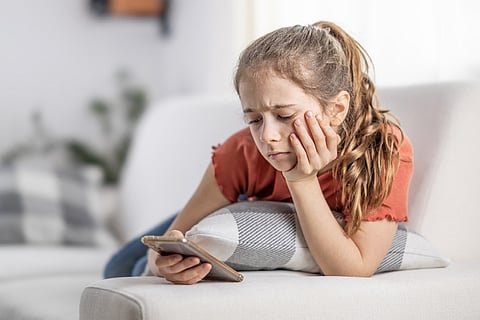THURSDAY, Sept. 26, 2024 (HealthDay News) -- Gamified digital mental health interventions (DMHIs) may offer benefits for youth with attention-deficit/hyperactivity disorder (ADHD) or depressive disorder, according to a review published online Sept. 23 in JAMA Pediatrics.
Barry R. Bryant, M.D., from Johns Hopkins University in Baltimore, and colleagues conducted a systematic literature review and meta-analysis to identify studies examining the efficacy and moderators of gamified DMHIs for anxiety, depression, and ADHD in randomized clinical trials (RCTs) for children and adolescents.
Based on 27 identified RCTs (2,911 participants across conditions), the researchers found modest significant effects of gamified DMHIs on ADHD (g, 0.28) and depression (g, 0.28). Small, nonsignificant effects were seen for anxiety disorders (g, 0.07). Larger treatment effects were seen for DMHIs for ADHD delivered on a computer and those RCTs that had a greater preponderance of male participants, as well as for DMHIs for depressive disorders that used preset time limits for gamified DMHIs.
"The findings suggest that gamified DMHIs may constitute a key piece of a comprehensive pediatric mental health treatment plan for youth with ADHD or depression, and future research should consider identified moderators to optimize treatment outcomes," the authors write.
One author disclosed ties to Emalex Biosciences, Syneos Health, and Noema Pharma.
Abstract/Full Text (subscription or payment may be required)


